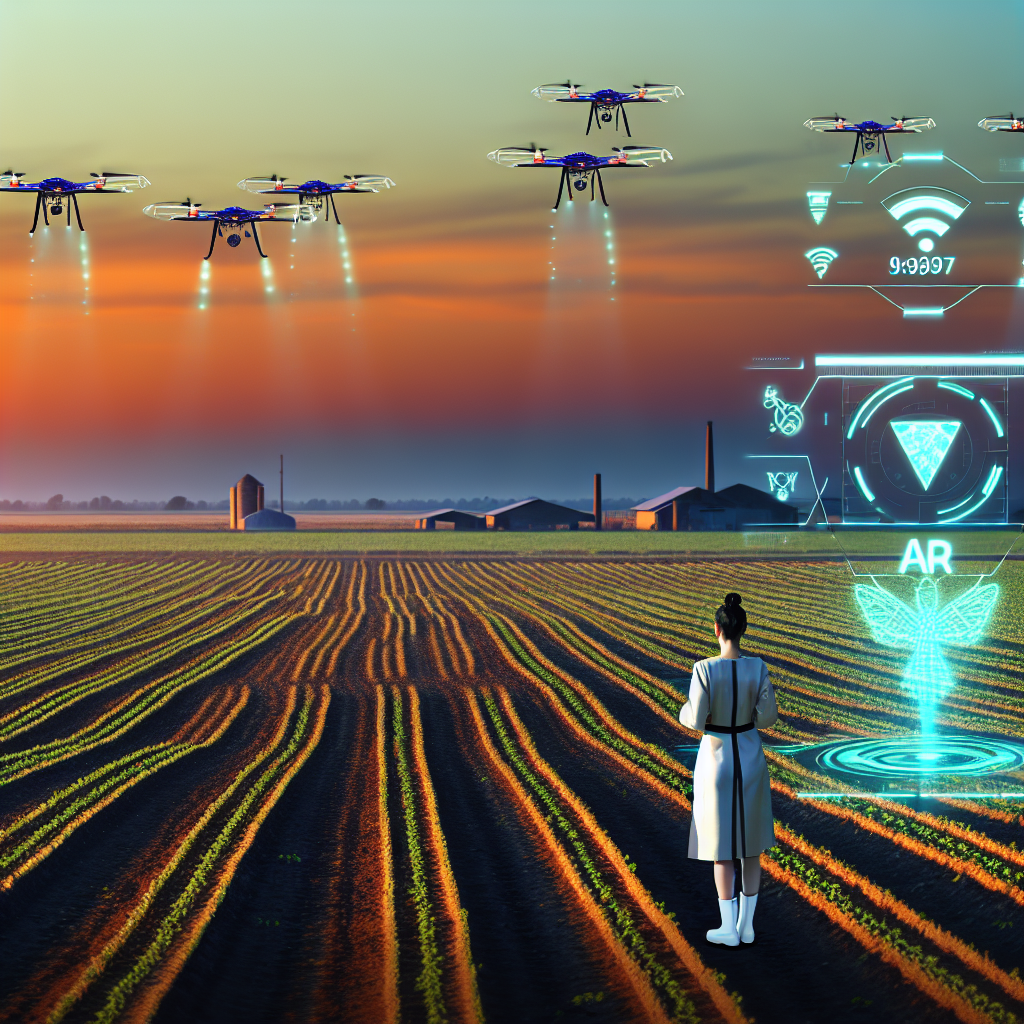AI and machine learning technologies, along with predictive analytics, are revolutionizing crop management in smart farming by analyzing data from sensors and drones to optimize production, predict yields, and make informed decisions on planting, irrigation, fertilization, and pest control. This results in more efficient and profitable crop management practices.
In the ever-evolving world of agriculture, Artificial Intelligence (AI) and machine learning are revolutionizing the way we approach crop management. Predictive analytics, coupled with AI technology, are transforming the way we grow and harvest crops, making farming smarter and more efficient than ever before. In this article, we will explore how AI is being harnessed to optimize crop management in the digital age, maximizing yields and efficiency for farmers. Join us as we delve into the world of smart farming and discover how predictive analytics is changing the game for agriculture.
- 1. Harnessing the Power of AI and Machine Learning for Smart Crop Management
- 2. Predictive Analytics: Revolutionizing the Future of Gardening with AI
- 3. Crop Management in the Digital Age: How AI is Changing the Game
- 4. Smart Farming: Maximizing Yields and Efficiency with Predictive Analytics and AI
1. Harnessing the Power of AI and Machine Learning for Smart Crop Management
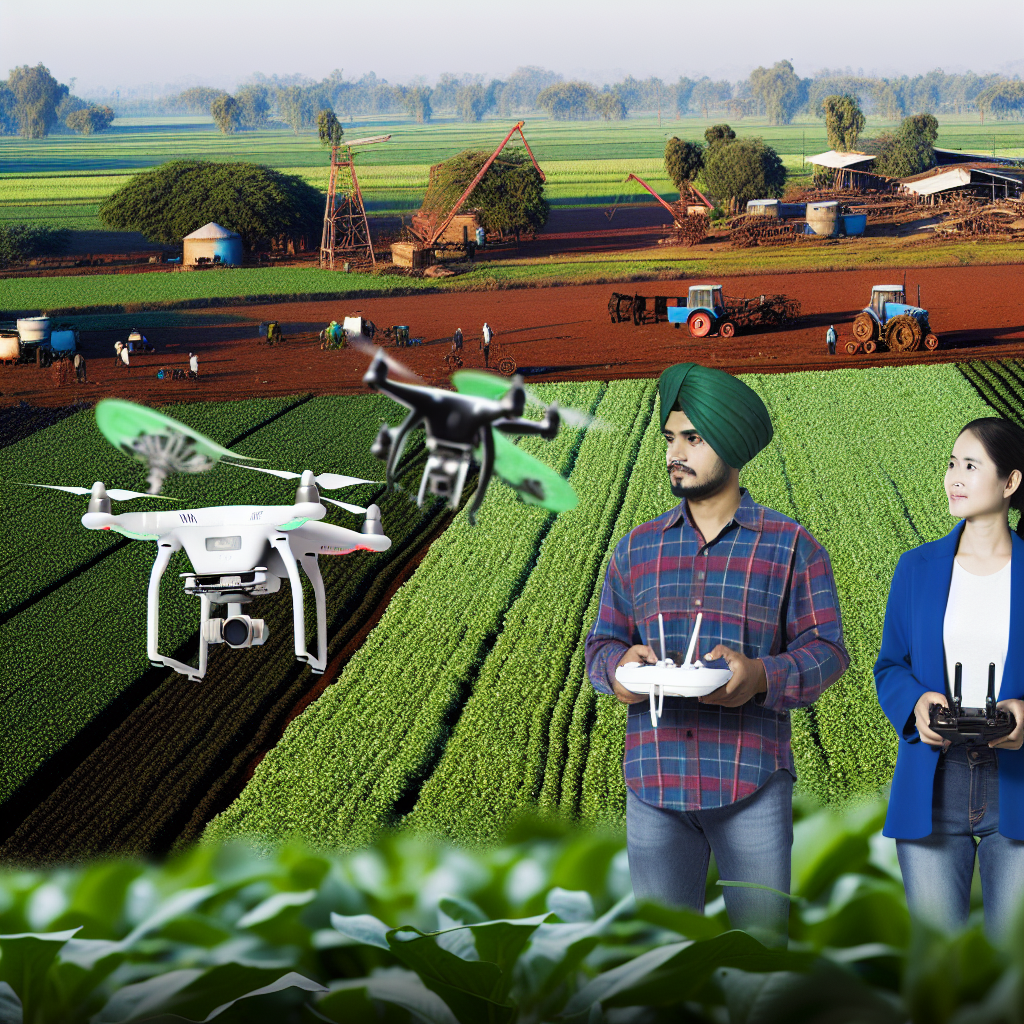
One of the most promising applications of artificial intelligence (AI) and machine learning in agriculture is smart crop management. By harnessing the power of these advanced technologies, farmers can optimize their crop production and increase their yields.
AI and machine learning algorithms can analyze vast amounts of data collected from sensors, drones, satellites, and other sources to provide valuable insights into crop health, soil quality, weather patterns, and more. This data can be used to predict future trends and make informed decisions about planting, irrigation, fertilization, and pest control.
Predictive analytics powered by AI can help farmers anticipate potential issues before they arise, allowing them to take proactive measures to prevent crop damage and maximize productivity. By leveraging these technologies, farmers can create customized crop management plans tailored to their specific needs and goals.
In the era of smart farming, AI and machine learning are revolutionizing the way crops are grown and managed. By integrating these technologies into their operations, farmers can improve efficiency, reduce costs, and ultimately increase their profitability. With the power of AI at their fingertips, farmers can take their crop management to the next level and achieve greater success in the ever-evolving agricultural industry.
2. Predictive Analytics: Revolutionizing the Future of Gardening with AI
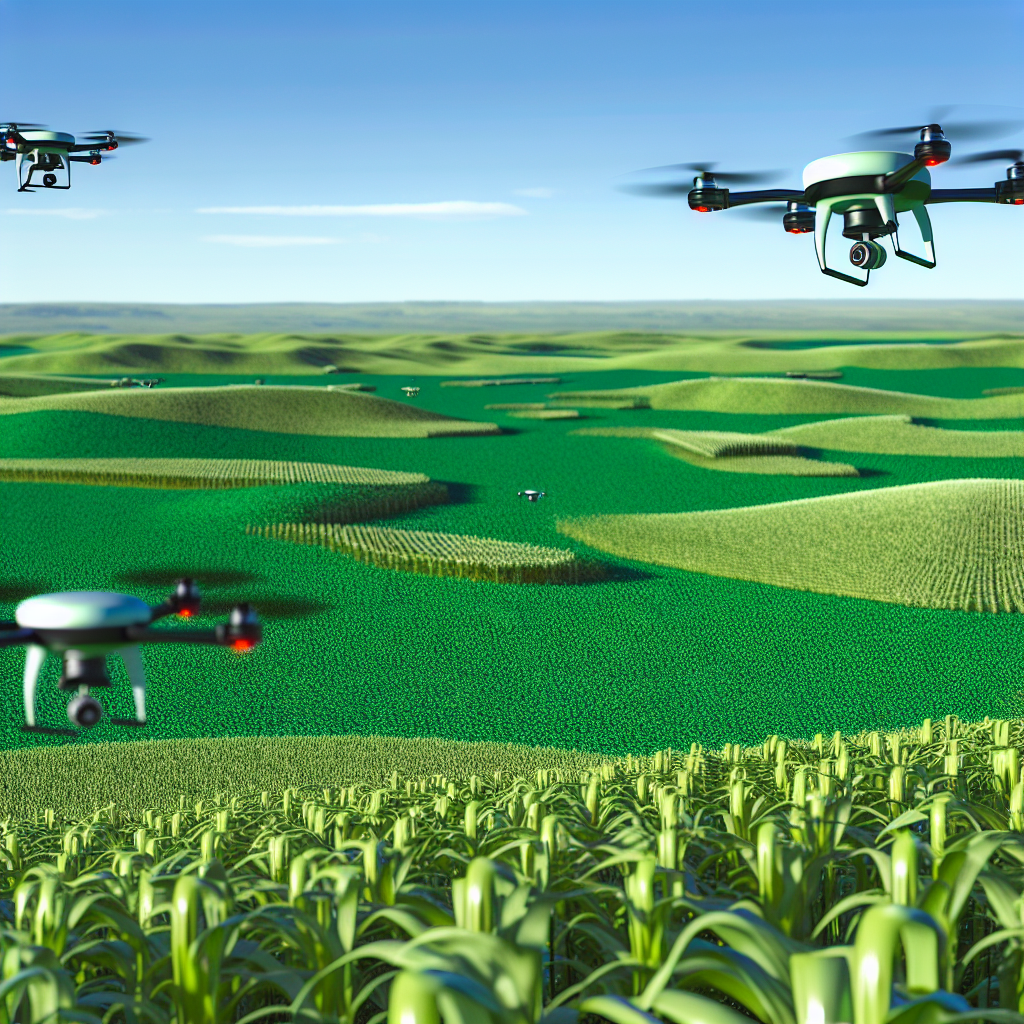
Predictive analytics, powered by artificial intelligence and machine learning, is revolutionizing the future of gardening and crop management. By analyzing vast amounts of data collected from sensors, drones, and other smart farming technologies, AI can predict and optimize various aspects of crop production.
One of the key benefits of using predictive analytics in gardening is the ability to forecast crop yields, pest infestations, and disease outbreaks. By analyzing historical data and real-time information, AI algorithms can provide insights into the best times to plant, water, fertilize, and harvest crops, ultimately improving overall crop yield and quality.
In addition, predictive analytics can help farmers make more informed decisions about resource allocation and pest control. By identifying patterns and trends in crop growth and health, AI can suggest the most effective strategies for managing pests and diseases, reducing the need for harmful chemical treatments and promoting sustainable farming practices.
Overall, the integration of AI and predictive analytics into crop management is paving the way for a more efficient, sustainable, and productive future in gardening. By harnessing the power of smart farming technologies, farmers can optimize their operations, increase yields, and ensure the long-term health of their crops and the environment.
3. Crop Management in the Digital Age: How AI is Changing the Game
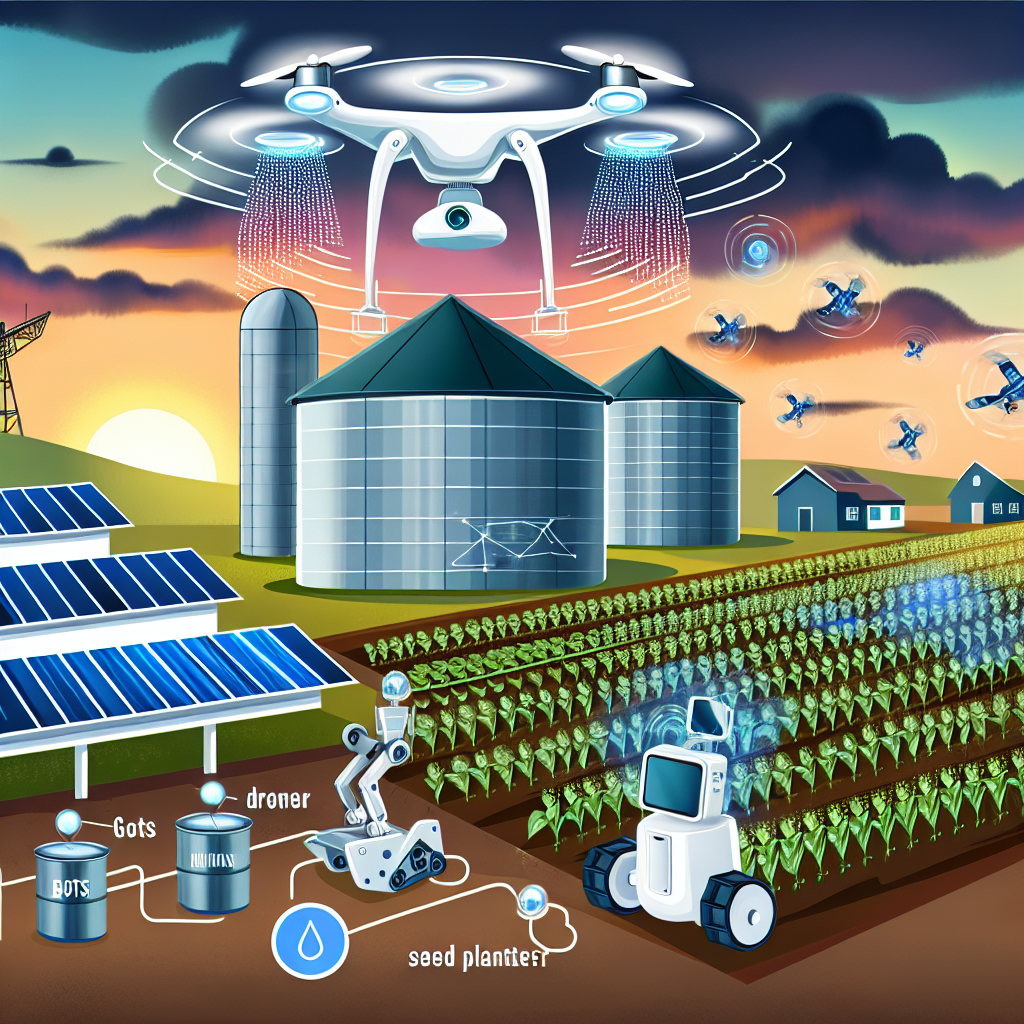
Crop management in the digital age is undergoing a transformation thanks to the implementation of artificial intelligence (AI) and machine learning technologies. These advancements are enabling farmers and gardeners to make data-driven decisions that optimize crop production and overall yield.
AI algorithms analyze data collected from sensors, drones, and other smart farming technologies to provide real-time insights into crop health, soil conditions, and weather patterns. This data is then used to predict future outcomes and recommend actions to improve crop management practices.
Predictive analytics powered by AI can help farmers identify potential issues before they arise, allowing for proactive measures to be taken to prevent crop loss. This proactive approach not only increases efficiency but also reduces the need for chemical inputs, leading to more sustainable and environmentally friendly farming practices.
Overall, AI is changing the game of crop management by revolutionizing how data is collected, analyzed, and utilized to optimize farming practices. Through the integration of predictive analytics and smart farming technologies, farmers can make more informed decisions that lead to higher yields and healthier crops.
4. Smart Farming: Maximizing Yields and Efficiency with Predictive Analytics and AI
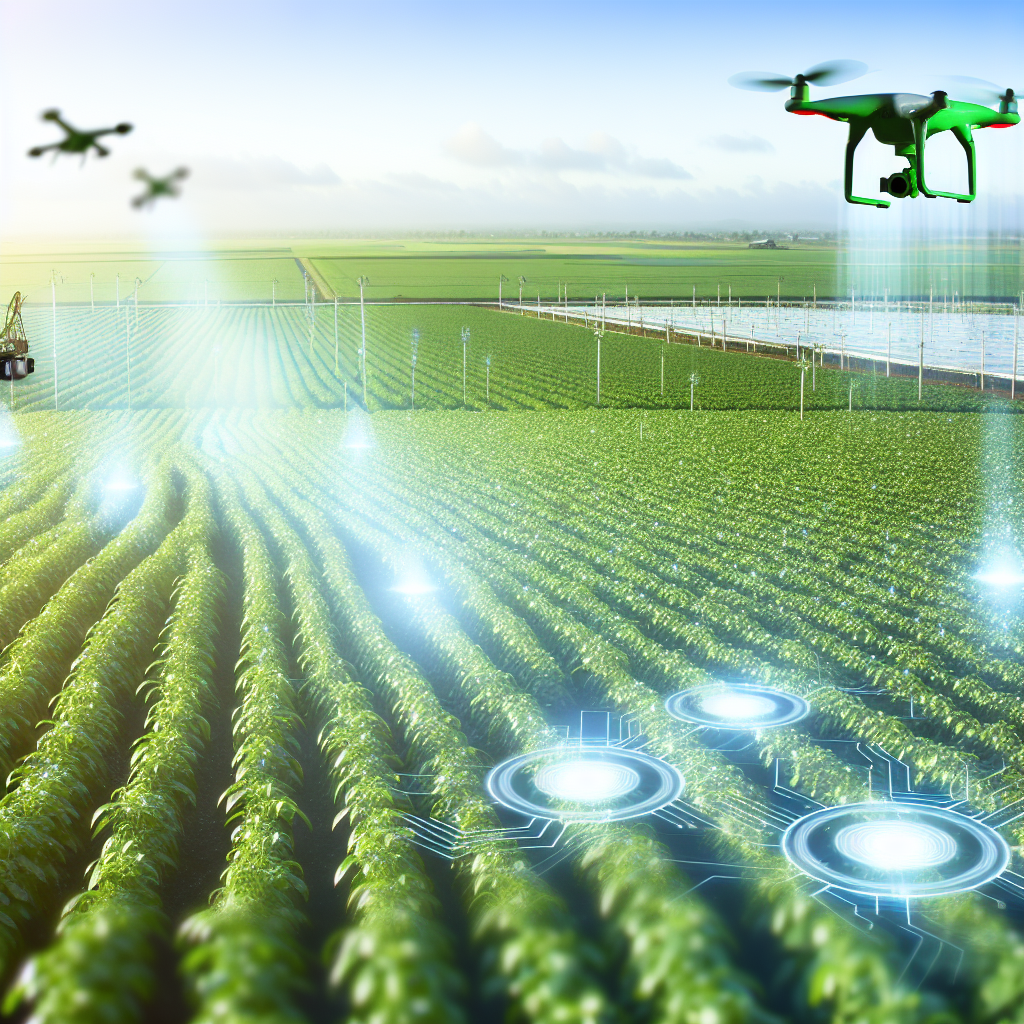
Smart farming, also known as precision agriculture, is revolutionizing the way farmers manage their crops by leveraging technologies such as artificial intelligence (AI), machine learning, and predictive analytics. These advanced technologies enable farmers to make data-driven decisions that maximize yields and efficiency in crop management.
By incorporating AI and predictive analytics into farming practices, farmers can analyze vast amounts of data collected from sensors, drones, and satellite imagery to gain valuable insights into crop health, soil conditions, weather patterns, and more. This information allows farmers to make informed decisions on when to plant, irrigate, fertilize, and harvest their crops, ultimately leading to higher yields and reduced waste.
One of the key benefits of smart farming is the ability to optimize resources and inputs, such as water, pesticides, and fertilizers, by applying them only where and when they are needed. This not only helps farmers save money and protect the environment but also increases the overall efficiency of crop management.
In conclusion, the integration of AI, machine learning, and predictive analytics in agriculture is transforming the way farmers approach crop management. By embracing smart farming practices, farmers can maximize yields, minimize risks, and ensure sustainable and profitable farming operations.
In conclusion, the integration of artificial intelligence, machine learning, and predictive analytics in gardening has revolutionized crop management in the digital age. Smart farming practices are now maximizing yields and efficiency, thanks to the power of AI. By harnessing these technologies, farmers and gardeners can make data-driven decisions that result in healthier crops and higher productivity. The future of gardening is indeed bright with the advancements in AI and predictive analytics, offering new possibilities for sustainable and efficient crop management. Embracing these technologies is key to staying ahead in the ever-evolving world of agriculture.


